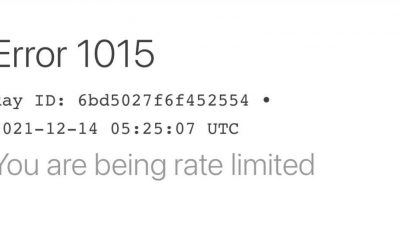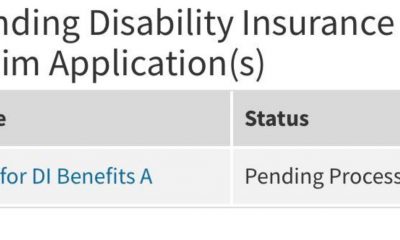Personal Finance
How Debt Consolidation Works in California

Even if you’re diligent about paying your monthly bills on time, it’s easy to get overwhelmed by mounting debt. This is especially true if you have debt with multiple creditors and high-interest rates. If you’re struggling to keep up with payments in California, you may want to consider debt consolidation.
What is Debt Consolidation?
Debt consolidation is the process of combining multiple debts into a single loan with a lower interest rate. For example, let’s say you have three credit cards with outstanding balances, a student loan, and a personal loan. You pay for each of these debts separately every month. If you consolidate your debt, you would take out a single loan to pay off all of the other debts, and then make one monthly payment to repay the consolidation loan.
The result is a lower monthly payment because the consolidation loan will have a lower interest rate than your other debts combined. Consolidating your debt can help you pay off your debt faster and save you money in interest over time.
Debt Consolidation Requirements
There are a few things Californians need in order to qualify for a debt consolidation loan:
- A good credit score: You’ll need a good credit score to qualify for a low-interest consolidation loan. If you have a bad credit score, you may still qualify for a loan, but you’ll likely pay a higher interest rate.
- A source of income: Lenders will want to see that you have a steady source of income to repay the loan.
- Low debt-to-income ratio: This is a measure of your monthly debt payments compared to your monthly income. Lenders will want to see that you have enough income to cover your monthly debt payments, as well as other expenses. A good debt-to-income ratio is 36% or less. This means that your monthly debt payments (including the consolidation loan payment) should be 36% or less of your monthly income.
- Collateral: Some lenders may require collateral to qualify for a consolidation loan. Collateral is an asset that can be used to secure the loan, such as a car or home.
How to Consolidate Your Debt
There are a few different ways you can consolidate debt in California:
Balance Transfer Credit Card
You can transfer the balances of your other credit cards to a balance transfer credit card with a lower interest rate. This will give you a period of time (usually 12-18 months) to pay off your debt without accruing high interest.
Personal Loan
You can take out a personal debt consolidation loan from a bank, credit union, or online lender to consolidate your debt. Personal loans have lower interest rates than credit cards. They also have fixed interest rates, which means your monthly payment will be the same every month.
Home Equity Loan
You can take out a home equity loan to consolidate your debt of you own a home. Banks allow you to borrow against the equity you have in your home. Home equity loans have lower interest rates than personal loans and credit cards.
Debt Management Plan
You can enroll in a debt management plan through a credit counseling agency. In a debt management plan, you make monthly payments to the credit counseling agency, which uses the money to pay your creditors.
The agency negotiates with your creditors to get lower interest rates and may waive late fees or other penalties. A credit counselor can also provide learning resources with great info on debt consolidation for Californians, which you can use to better manage your finances.
Which Debts Can Be Consolidated?
Debt consolidation is primarily used to consolidate credit card debt. However, you can also consolidate other types of debt, such as:
- Student loans
- Personal loans
- Medical debt
- Payday loans
- Auto loans
The type of debt you can consolidate will depend on the lender you use. Some lenders only offer debt consolidation loans for certain types of debt, while others will consolidate any type of debt.
The Benefits of Debt Consolidation
There are a few potential benefits of consolidating your debt such as:
Pay less total interest: You get a lower interest rate when you consolidate your debt. This means you’ll pay less interest over the life of the loan.
Simplify the debt repayment process: It can be difficult to keep track of all the different payments when you have multiple debts. Consolidating your debt into one monthly payment can make it easier to keep track of your debt repayment.
Improve your credit score: You may see your credit score improve over time if you make all your payments on time and in full. This could help you qualify for better rates on future loans.
Disadvantages of Debt Consolidation
Put collateral at risk: Some consolidation loans require collateral, such as a home or car. If you can’t make your payments, you could lose the asset that secures the loan.
Could raise the total cost of debt: If you extend the repayment period when you consolidate your debt, you could end up paying more in interest over the long term.
Pay upfront costs: There may be fees associated with taking out a consolidation loan, such as an origination fee or application fee. These fees can add to the overall cost of the loan.
Tips for Consolidating Your Debt
Here are a few tips to keep in mind if you’re thinking about consolidating your debt:
Compare interest rates: You want to make sure you’re getting a lower interest rate than you’re currently paying.
Check for fees: Some consolidation loans come with fees, such as an origination fee or application fee. Be sure to compare the total cost of the loan before you decide on a lender.
Consider your repayment period: A longer repayment period could mean you pay more in interest over time. You may want to consider a shorter repayment period if you can afford higher monthly payments.
Make sure you can qualify: Some lenders have strict requirements for qualification. Be sure to compare the requirements of different lenders before you choose one.
Get help from a nonprofit credit counseling agency: If you’re not sure where to start, a credit counseling agency can help you create a budget and develop a plan to get out of debt.
Should You Consolidate Your Debt?
Debt Consolidation is not a one size fits all solution for debt problems. It will not address the underlying issues that led to the accumulation of debt. It also may not be the best solution for every person or every type of debt.
However, if handled correctly, debt consolidation can be a tool to help Californians get out of debt and improve their financial situation. Consider your options and speak with a financial advisor to decide if debt consolidation is right for you.
Win Your Battle With Debt Through Consolidation
Debt consolidation can be a helpful tool in your battle against debt. Just be sure to do your research and compare your options before you decide on a consolidation loan.
Other alternatives to consolidation loans are available and maybe a better fit for your situation. These include debt settlement and debt management. You can also try to negotiate with your creditors on your own to get lower interest rates or create a payment plan that works better for you. Whichever route you decide to take, be sure to stay on top of your payments and keep working towards getting out of debt.












